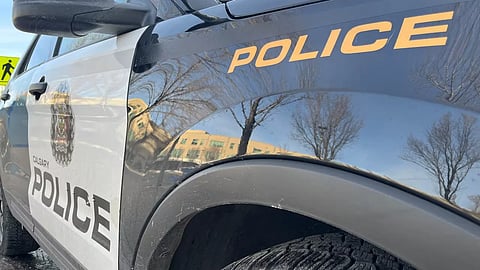

Calgary’s first responders, police, fire, medical, as well as transit staff, are on the election platforms of promises of at least three candidates in the mayor’s race.
Sonya Sharp, Jeff Davison and Jeromy Farkas released plans for their support for first responders over the last week.
Sharp said, if elected, her first official meeting will be with Calgary Police Chief Katie McLellan.
“I want the chief to know that a Communities First council is very supportive of her, the front-line officers and the critical work that they do. We’d like to see a plan to recruit and train 500 new police officers be submitted for council review in November budget deliberations, and to reintroduce a 24/7 downtown police station,” said Sharp.
“We’d like to see a plan for more enforcement in the downtown and Beltline, as well as a safety plan for transit sites in coordination with transit security.”
Sharp said her plan highlights, "that all citizens, regardless of their backgrounds or circumstances, have the same rights and responsibilities.”
“Our public spaces in Calgary need to be safe for everyone. They aren’t a place where you can brandish weapons or do drugs. It’s up to our police and bylaw officers to enforce them and feel confident politicians will support them in doing this difficult work.”
Sharp maintains challenges with current staffing, recruiting and morale in the service, is indicative of the Calgary Police Service being, “quietly defunded over the past decade."
“Calgarians who feel their city is less safe today than it was four years ago have a clear choice in this election. My Communities First team members and I are prepared to find the funding to reinvest in policing in Calgary for the long-term, so we can immediately start tackling crime and social disorder in the downtown, on transit and in our communities.”
Davison rolled out his A Safer Calgary Now Task Force Plan, calling it “a bold, unified approach to cracking down on crime on Calgary streets,” that includes "working with the provincial and federal governments in the areas of mental health initiatives, addictions strategies, bail reform and wrap-around care in order to achieve long-term real results."
“Day one, we will strike a task force and get to work immediately on collaborative solutions that will lead Calgary out of this disaster,” said Davison. “It’s time to restore law and order on our streets. It’s time to round up the criminals, get people into recovery and clean up our streets. Young people are scared to ride transit, seniors won’t walk downtown, drug addicts are shooting up in the Plus 15 system and businesses are being forced to hire private security. Enough is enough.”
Davison said his priorities are: boosting Calgary’s Police Service and Peace Officers; restoring government partnerships; cracking down on problem businesses involved in illegal activities; ending failing policies, including closing the Sheldon Chumir safe consumption site; introducing new bylaws to make street encampments and unsafe behaviors prohibited; reopening a downtown police station, and; partnering with local agencies.
He said “comparable initiatives in other North American cities saw crime reductions of nearly 40% following coordinated law enforcement and cleanup efforts. “This proves what’s possible when leadership stops making excuses and starts acting.”
“Calgarians deserve a city where you can take your kids to the park without fear, where seniors feel safe on the bus, and where businesses aren’t being crippled by crime,” Davison added. “My plan is about restoring safety, restoring order, and restoring pride in our city.”
On Monday, Farkas announced his First Responder Support Plan, that he says is “a comprehensive initiative to protect Calgary’s police officers, firefighters, paramedics, and transit workers.
“Transit operators are being attacked on the job, nearly one in five police officers is sidelined by injuries or stress, and firefighters continue to face elevated cancer risks because of toxic exposures,” he said. “When those who serve us in our most vulnerable moments aren’t safe or supported, the whole city pays the price. We need to do better to have their backs.”
Farkas, a former police commissioner, said his plan’s priorities are: Safer transit. including the installation of protective shields, improving station and vehicle lighting, and appointing a dedicated transit advocate to put safety front and centre; staffing that keeps up by ensuring police, fire, EMS, and transit staff levels keep pace with Calgary’s rapid growth; mental health supports that expand trauma counselling and peer support programs for first responders and their families; protection of firefighters’ health, by addressing workplace cancers through early detection, proper coverage, safer equipment, and exploring modernized governance through a fire commission, and; workplace safety and accountability, including establishing a mayor’s task force with front-line staff at the table and expanding community policing to build trust in neighbourhoods across the city.
“When our first responders are safe and supported, every Calgarian is safer too,” he said. “This plan is about making sure that those who protect us have the protection and respect they deserve.”
